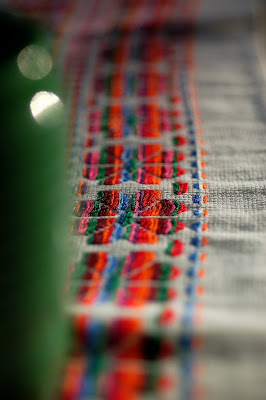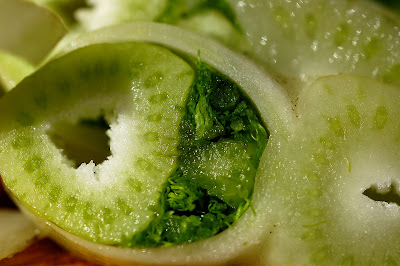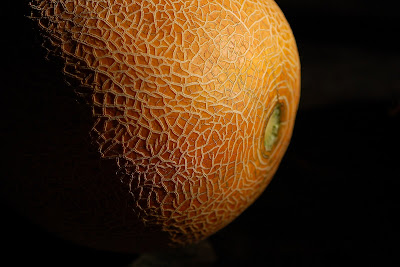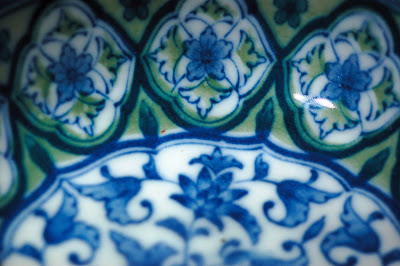
My first morning home I picked this handful of tomatillos and made a pot of Rancho Gordo pinto beans. I appreciated food cooked in my own kitchen all over again although I hardly went hungry while away.
I traveled for ten days with
Global Exchange to Oaxaca, Mexico to celebrate the Day of the Dead, learn about the effects of
GMO contamination on native varieties of corn and the challenges created by migration to the indigenous people and their land. I had no idea however I was in for so much more.
We toured the ruins of
Monte Alban and
Mitla; visited a healer, a third generation artisan
mescal farm, a public radio station funded by the people and markets that rivaled any I've visited. The earthiness of the markets alone was worth the trip.
We ate as guests in private homes, one mole after another. My favorite was the
chichilo, served at a long white clothed table in the midst of a forest at the base of Monte Alban. If I could speak Spanish I would have talked with
Noemi Gomez Bravo, a member of a United Nations work group for the human rights of the indigenous people. Instead we smiled and ate
chapulines (grasshoppers), from one of many shared bowls for snacking.
The evening of
Dia de los Meurtos we were the guests of a family in Xoxocotlan for a traditional meal prior to the vigil, or in our case a visit, in the cemetery. We drank hot chocolate and ate tamales that were without a doubt from out of this world, made by two Grandma's I wanted to bring home. The meal finished with a warm pudding like horchata that took a minute to get used to but then only another to reach the bottom of the cup.
Instead of the Grandma's I smuggled home a pound of frijoles negro, a sugar skull and half a dozen sugar angels, between layers of dirty socks and a handwoven wool rug from Teotitlan del Valle.
We also ate at tiny kitchens in near by markets, an ecotourist restaurant run by an indigenous community on the bank of a crystal clear river. We ate at the end of an alley in a restaurant unlocked just for us and cooked by a single woman with what seemed like eighteen arms. "Can I help," I asked in broken Spanish.
"No, no, no," she answered. And for the hundredth time I was sad I didn't have the language.
But I knew how to say gracias and repeated it a million times. I was humbled by the generosity and spirit of the people we met. I despaired at the challenges of their country which so closely mirror those of ours but I also recognized our shared optimism that knows no borders.
Si se puede, they seemed to always say and I silently responded, yes we can. I couldn't have been happier to hear those words, yes we can, echoed loudly Tuesday night. They were an even better homecoming than a pot of beans.
 There was a very good article, A Life Without Plastics?, run on the front page of the Chicago Tribune yesterday (yes, I have the tiniest of mentions in it) about attempting to live plastic free. It is laugh out loud funny and heartwarming in it's sincerity.
There was a very good article, A Life Without Plastics?, run on the front page of the Chicago Tribune yesterday (yes, I have the tiniest of mentions in it) about attempting to live plastic free. It is laugh out loud funny and heartwarming in it's sincerity. 














































